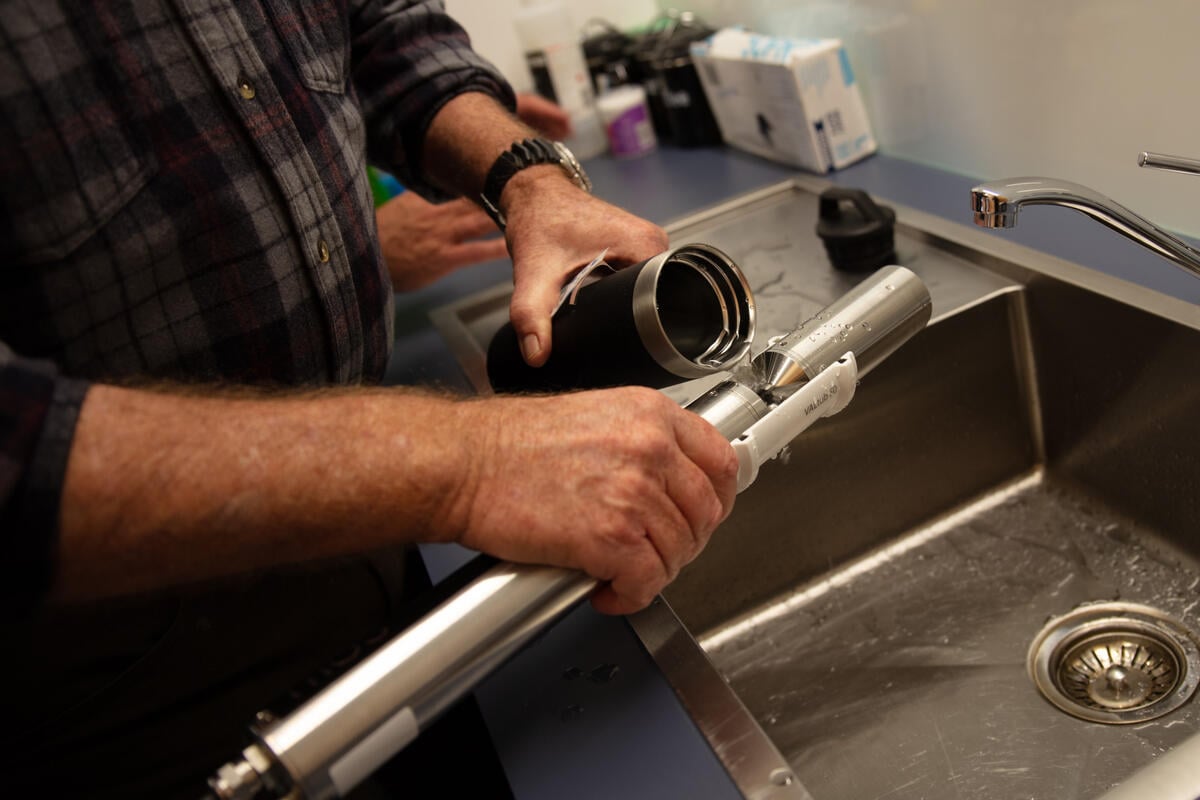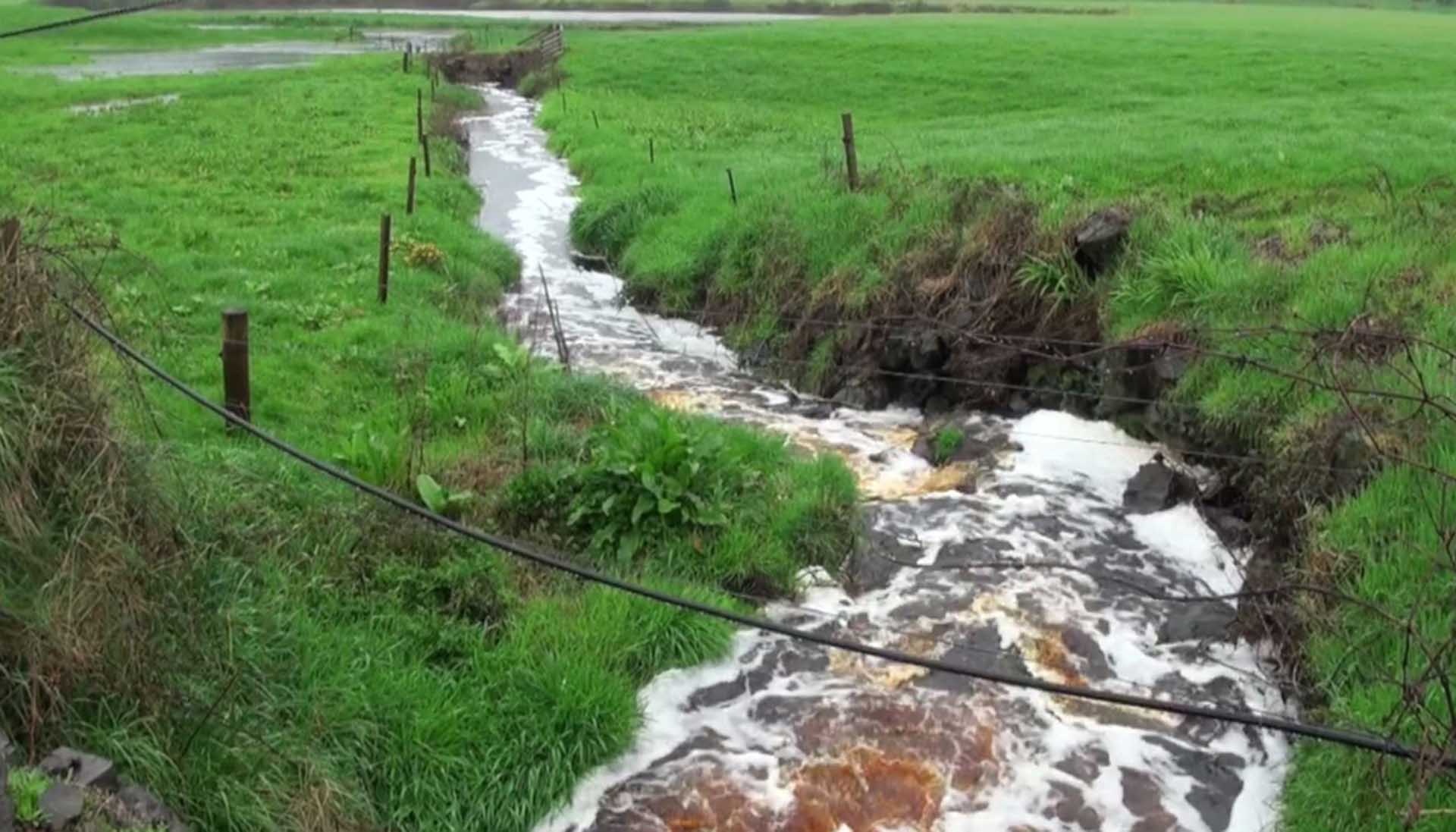Everyone should be able to trust that the water from their tap is safe to drink. But synthetic nitrogen fertiliser – and the intensive dairying it enables – is causing alarmingly high levels of nitrate contamination in our drinking water, endangering people’s health.
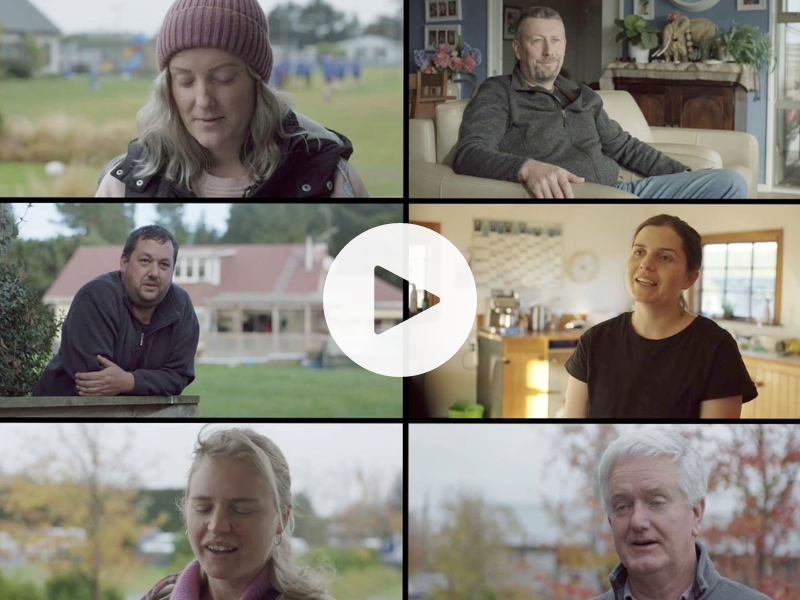
Ensuring safe drinking water for everyone
For many New Zealanders, especially those in rural areas who rely on groundwater, nitrate-contaminated drinking water has become a disturbing reality. Over recent decades, synthetic nitrogen fertiliser has been extensively used in places like Canterbury, Southland, and Waikato. The dairy industry alone consumes 67% of New Zealand’s synthetic nitrogen fertiliser to boost grass growth for dairy cows.
Unfortunately, much of the nitrogen cows ingest is excreted and then leaches into groundwater, contaminating drinking water with nitrate. This poses several health risks, including Blue Baby Syndrome, preterm birth, low birth weight, and a potential link to bowel cancer. The International Agency for Research on Cancer has classified nitrate as “probably carcinogenic to humans” under certain conditions.
Since 2021, Greenpeace has held free nitrate testing events across Aotearoa to inform people about nitrate contamination risks. Last year, Greenpeace initiated free mail-in water testing. Thanks to supporters like you, we conducted over 1,500 nitrate tests on household water supplies between May 2021 and Aug 2023.
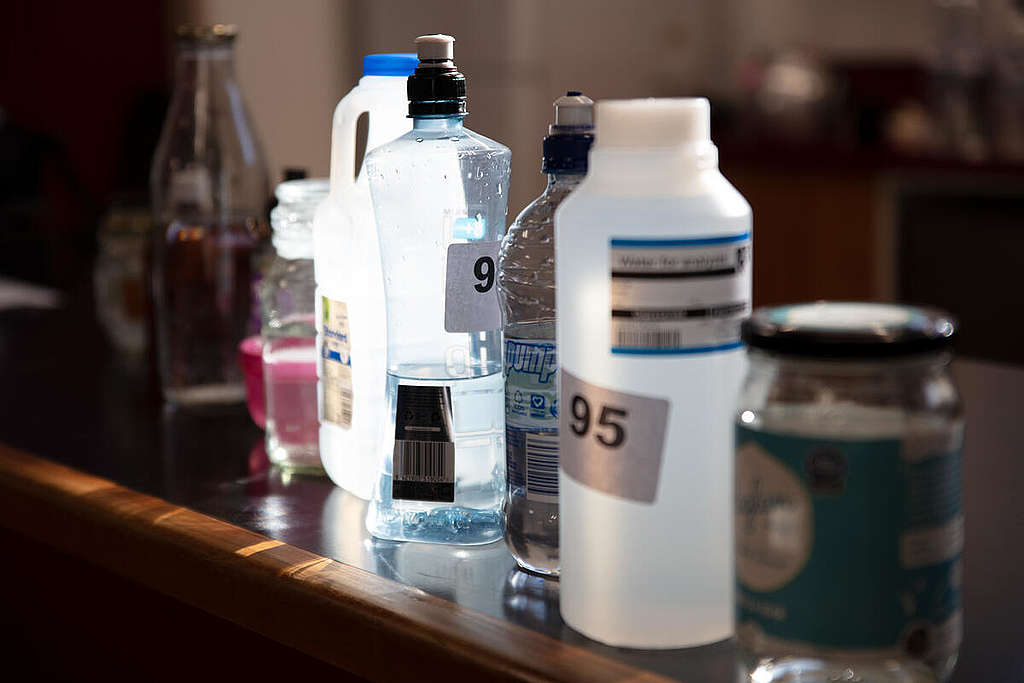
The alarming impact of nitrogen pollution
Recent research published in the Australasian Journal of Environmental Management indicates that a staggering 11,000 litres of water are required to dilute the pollution from just one litre of dairy milk produced in Canterbury. Due to high nitrate contamination, groundwater supplies near dairy pastures are on a concerning trajectory towards undrinkable levels.
Currently, the allowable nitrate limit in water is 11.3 mg/L, a limitation that public health physician Professor Michael Baker deems “hopelessly out of date.” This limit only protects against infant death from Blue Baby Syndrome and neglects chronic health impacts like bowel cancer.
Shockingly, more people are exposed to nitrate levels exceeding this limit. In Canterbury, 8% of monitored groundwater wells surpass it; nationwide, around 6% of groundwater supplies exceed this high limit.
Studies have shown that even at lower nitrate levels (5 mg/L), there is a risk of preterm birth, and at 0.87 mg/L, there is an increased risk of bowel cancer. Scientists warn that up to 800,000 New Zealanders could be exposed to hazardous nitrate contamination, potentially leading to 100 cases of colorectal cancer and 40 deaths annually.
A recent Californian study found a nearly 50% increased risk of preterm birth and underweight birth for babies of pregnant individuals consuming water with nitrate concentrations above 5 mg/L.
Real families suffer from nitrate contamination, primarily caused by the dairy industry. This is why we must take action together – everybody deserves safe drinking water.
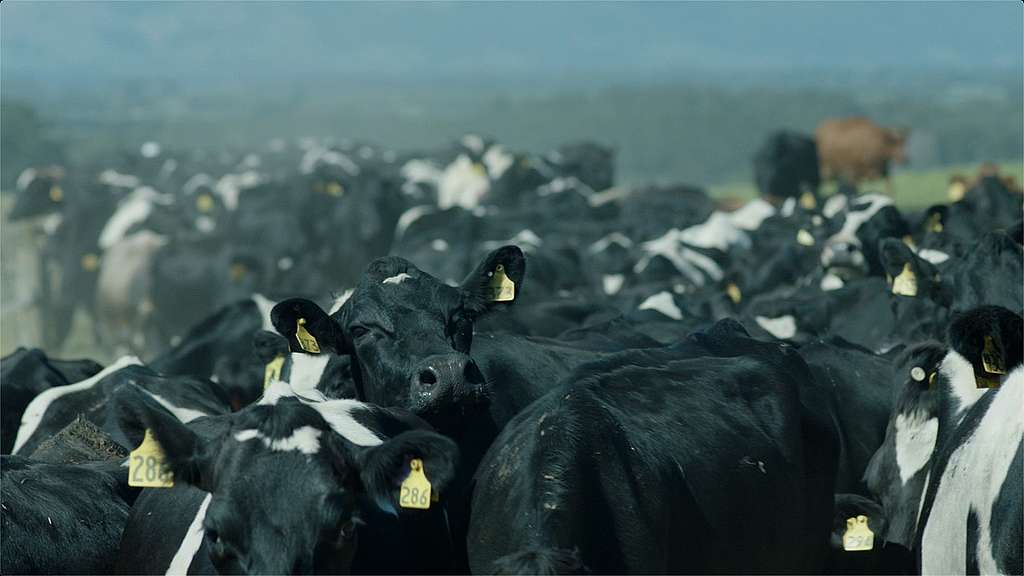
Sign on now to call on the New Zealand Govt to ban chemical nitrogen fertiliser.
Take ActionThe dairy industry’s impact on the environment
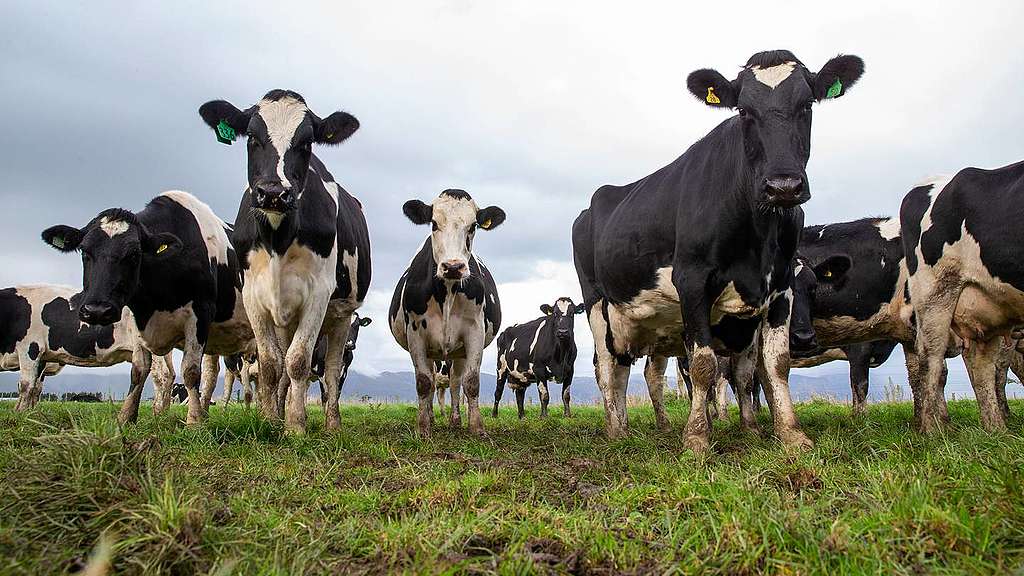
Over the past thirty years, Aotearoa’s dairy herd has nearly doubled, with some regions seeing even more extreme increases. The combination of excessive cow numbers and a 693% surge in synthetic nitrogen fertiliser use has led to heightened climate emissions, polluted rivers, and increasingly contaminated drinking water.
Regrettably, the government’s response has been inadequate. Their Emissions Reduction Plan (ERP) has essentially given intensive dairy farming, Aotearoa’s largest climate polluter, a free pass.
We’re already witnessing the devastating effects of the climate crisis, such as wildfires, intense storms and flooding. Solutions exist, including reducing the number of cows, promoting plant-based regenerative organic food production, and phasing out synthetic nitrogen fertiliser. A Government that is serious about climate change should be putting these initiatives at the top of the list.
Taking action for a sustainable future
We are urging the government to phase out synthetic nitrogen fertiliser, reduce dairy stocking rates, and support farmers transitioning to plant-based, regenerative organic farming. This will help in the fight against climate change while cleaning up rivers and ensuring safe drinking water. But we need your help to make this happen.
How you can make a difference
We need you to sign the petition calling for a ban on synthetic nitrogen fertiliser to help transition intensive dairying to a way of farming that works with, instead of against, nature.

Alarmingly high levels of nitrate contamination in our drinking water is endangering people’s health.
Take Action

